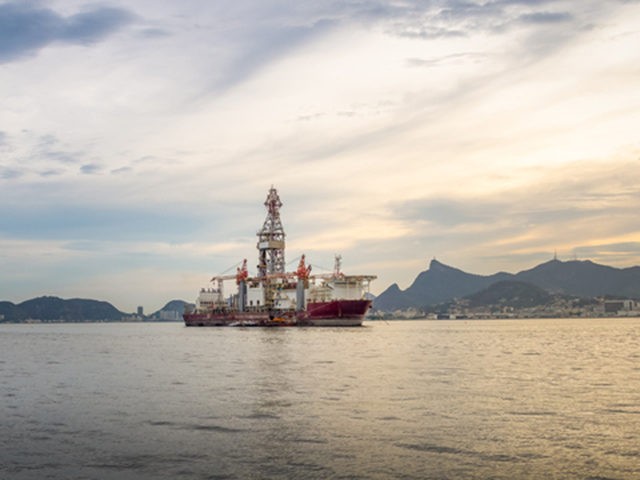Brazil’s Vale, an ore mining company with expansive business interests in China, will collaborate with China’s Ningbo Zhoushan Port operators on a $624-million project to expand export capacity into the communist country, the South China Morning Post confirmed on Tuesday.
Both Vale and Petrobras, Brazil’s state-run oil company, have expressed interest in the past year in expanding trade in China. Brazil’s farmers have also grown increasingly dependent on Chinese sales, filling the soy bean void temporarily left by President Donald Trump’s trade negotiations with the Communist Party. According to the Brazilian newspaper O Globo, Brazil exported 14 percent more to China between January and August 2020 than during the same period of 2019, despite significant economic limitations for most of the year due to the Chinese coronavirus pandemic. Brazil simultaneously reduced its sales of key exports to the United States, making its market more dependent on China.
China is Brazil’s largest trade partner.
Brazilian President Jair Bolsonaro ran for office in part on the promise of not allowing China to monopolize and control the Brazilian economy. He has also attempted to craft for himself an image as the world’s most aggressively anti-communist president, but has reserved his strongest condemnations for long-dead communist figures like mass murderer Ernesto “Che” Guevara and has largely remained silent against the largest Communist Party in the world — China’s, believed to be housing as many as 3 million people in concentration camps currently.
According to the Morning Post, Vale is expected to own 50 percent of a new port facility to be built in China’s eastern Zhejiang province alongside Ningbo Zhoushan, meant to facilitate importing iron ore. Ningbo Zhoushan is a subsidiary of a state-run Chinese terminal operator, meaning Vale is entering into a business deal directly with the Communist Party. The Chinese Communist Party does not allow for any business operations in the country that it does not control, even when allowing superficially “private” industry.
“The joint venture, known as the West III Project, will allow for the handling of an additional 20 million tonnes of iron ore a year at the port, which is located south of Shanghai,” the Morning Post noted. “Vale’s participation in the project will increase its annual iron ore capacity at the port to a total of 40 million tonnes.”
O Globo noted that Vale’s contributions to the project may range between $109 million and $156 million in a report on the deal this week. The project’s total estimated multi-year value is $624 million. Vale already sends about 60 percent of its ore to China.
The new port is reportedly one of four projects meant to expand Vale’s ability, specifically, to import iron ore.
The announcement of the project followed reports in Brazilian media that both Vale and Petrobras were seeking to expand an already significant presence in the Chinese market. Last month, senior executives from both corporations attended the China-Brazil International Trade Fair for Services, a Communist Party event, in Rio de Janeiro, where the executive director of external relations at Vale said he expected the company not just to expand iron ore purchases, but nickel and cobalt.
Under Bolsonaro, fossil industries are not the only ones seeing expansion into China. Brazil’s soybean industry, one of the world’s largest, has taken advantage of the tensions between Beijing and Washington that saw China seeking new markets to fulfill its soybean demand and pausing purchases of American soy as President Donald Trump increased tariffs. China bought 71 percent less soybean crop in 2018 than 2017.
The U.S. reversed course with a deal that resulted in China purchasing 2.5 million metric tons of soybeans by November 2019, but reduced tensions between the two nations have not stopped Bolsonaro’s attempts to expand Brazil’s share of the Chinese agricultural market. Bolsonaro visited Beijing in October 2019, meeting with dictator Xi Jinping and asserting that Brazil and the Communist Party under his governance are “completely aligned in a way that reaches beyond our commercial and business relationship.”
Bolsonaro and Xi signed eight trade agreements, including some on agriculture that expanded Brasilia’s competitiveness in the country. Among the specified agricultural products mentioned in the deals were processed beef and cottonseed meal for livestock. Bolsonaro also gifted Xi a jersey belonging to what he called Brazil’s best soccer team, Clube de Regatas do Flamengo.
Bolsonaro’s attitude at the time differed significantly from his words as a candidate.
“China isn’t buying in Brazil. China is buying Brazil,” candidate Bolsonaro warned in 2018. “Are you willing to leave Brazil in the hands of the Chinese?”
China is currently in the throes of a food crisis after nationwide floods devastated rural areas this summer. Xi announced a “war on food waste” in August, claiming that the true problem was increasingly popular videos of people, mostly small women, eating large amounts of food, but nonetheless forcing the Chinese people to limit food purchases, hinting at concerns over the nation’s food supply.

COMMENTS
Please let us know if you're having issues with commenting.